Like human beings who require nutrients for survival, it is the same way the cannabis plant does. The weed plant needs various nutrients for steady growth and development. However, the acidity and alkalinity of the nutrients, water, and soil have a significant impact on the well-being of the pot plant.
If the cannabis plant does not get a particular nutrient in the required quantity, it displays deficiency signs that alert you about the condition. For example, zinc is among the primary nutrients that the weed plant needs to grow into a beneficial product. Lack of this nutrient results in various ill-health signs among your marijuana plants.
According to the analysis done in the cannabis industry, most growers consider zinc as a minor nutrient that the pot plant needs. However, there are multiple micronutrients that marijuana growers should monitor closely to ensure the safety of their plants.
marijuana plants require more micronutrients for steady growth than the other nutrients that most growers think about. Note that when the micronutrients are absent or available in minimal quantities, then the cannabis plant is likely to grow poorly.
The cannabis growing mediums that you see on the market have a high value of micronutrients that play a significant role in the growth and development of the plant. This means that growers should remain vigilant to ensure that the plants get access to micronutrients at the desired levels.
Even though the growing medium sold on the market has high levels of micronutrients, it is vital to remain mindful and watch the growth rate of your marijuana plants closely. The lack of micronutrients such as zinc harms the growth of the cannabis plant.
Zinc is a vital nutrient for any plant to be healthy. Zinc facilitates chlorophyll production, builds proteins, and regulates the number of enzymes produced as the plant grows. Generally, zinc contributes highly in facilitating physiological processes for the plants’ growth and development.
In addition, it aids in the generation of energy that supports the plant stems, branches, stalks, among other parts. Therefore, even though zinc seems to have numerous benefits on the development of the weed plant, an excessive amount of zinc has multiple adverse effects on the weed plant.
Even though cases of excessive zinc are rare, they are likely to happen at some point among cannabis growers. Therefore, growers need to keep in mind this condition in their pot plants.
Other nutrients in the weed plant, such as nitrogen and phosphorus, are considered mobile since they can move from one point to another. On the other side, zinc is not a mobile nutrient since it concentrates at one point on the lower side of the cannabis plant.
The nutrient stays at one point, waiting to be transported throughout the entire cannabis plant. Due to this fact, zinc deficiency is likely to occur on your plants at any time if you do not take the necessary precaution.
There are specific signs that indicate that the cannabis plant is suffering from zinc deficiency. Therefore, growers should evaluate their marijuana plants keenly from top to bottom. Do you know some of these signs? Let’s roll together for more info in this article!
Zinc is responsible for monitoring and regulating the cannabis plant growth hormones. Lack of this nutrient causes multiple abnormalities in the growth and development of your cannabis plant. As a result, you will realize that your plant is growing less vitality and more thin than its initial state.
When this condition continues for a while, you will realize that the leaves begin to curl. Then, finally, the leaves will die and fall from the plant.
When the weed plants suffer from zinc deficiency during the flowering stage, you will find out that the buds are not growing as heavy as they should be. Instead, the buds will be light, and at some point, they will begin getting airy. The development of the buds will be prolonged and might even stop altogether.
The cannabis will end up producing poor yields of lower quality than expected. This will end up being a significant loss to the weed grower who has invested in the cannabis plants.
This is one of the most notable signs of zinc deficiency in the cannabis plant. The leaves and the stems of the marijuana plants turn yellow indicating malnutrition. Note that the leaves only turn yellow at the tip and the edges while the middle part turns closets.
When this condition becomes more severe, the entire leaf turns yellow and develops various spots that look like rust. If the health issue of the plant is not handled, then the life of the cannabis plant is at high risk of dying. The signs of Chlorosis are likely to be seen at the final stage of the deficiency.
Zinc is an important element that supports the cannabis plant in terms of growing tall. Lack of this nutrient results in stunted growth. This happens in a manner that the space between the nodes is minimal, and then the leaves of the plant appear to have been bunched together.
Any new leaf that will be formed finds it hard to open up and grow further. Besides, once the leaves are produced, they undergo discoloration indicating poor health.
Whenever you want to solve a problem, it is always good to identify the cause of the problem. For example, the most common reason behind zinc deficiency is using water that has poor pH levels. When you use water with a higher pH level, the soil becomes more alkaline as you continue using the same water.
As time goes, the roots of the cannabis plant will not be able to absorb the required levels of zinc to facilitate the development of the plant. However, this will allow the absorption of other elements in large quantities affecting the development of the pot plant.
Another reason behind zinc deficiency is overwatering the plant. Marijuana growers should note that overwatering has a significant problem to do with the root system of the cannabis plant. Overwatering affects the absorption of oxygen by the roots, and at some point, it results in the rotting of the cannabis roots.
Using high-quality fertilizers does not solve anything since the root system of the cannabis plant is totally damaged. In addition, the root system might also be affected by insect infestation or fungi, which prevents zinc absorption by the roots.
Cannabis growers should be extremely keen on the ingredients of the fertilizer they use on their plants. Unfortunately, there are various ingredients that do not incorporate any type of micronutrients necessary for the growth and development of the weed plant.
Also, it is critical to analyze the soil or the growth medium you are using to grow your plants. Certain types of soils and growing mediums do not have micronutrients resulting in zinc deficiency.
Zinc deficiency has adverse effects when cannabis growers do not take action within the required time. Even if the deficiency does not kill the entire plant, it will affect the productivity of the entire plant. How do you solve zinc deficiency? Continue reading this article for more info!
If you have already identified that your marijuana plants suffer from zinc deficiency, the immediate step should be flushing the entire plant with neutral water. This will aid in reviving the root system of the cannabis plant by eliminating salts and other nutrients that might be preventing the rot system of the plant from absorbing zinc.
This should be done after the marijuana growers have measured the pH level of the soil. Also, they should ensure that the water they are using to flush the plant does not contain any impurities.
Cannabis growers can solve zinc deficiency by using a mixture of zinc, manganese, and iron. Apart from leveraging the issue of zinc deficiency, it will ensure that the marijuana plant has a balance of all the necessary nutrients responsible for the growth and development of the weed plant.
Before applying nutrient supplements or homemade fertilizers, marijuana growers should ensure that all the nutrients are balanced to prevent the reaction of the nutrients against each other. For example, the application of supplements that incorporate zinc sulfate and zinc oxide works better to solve zinc deficiency in cannabis plants.
Chelated zinc is another exceptional solution you can use to get the work done. This solution consists of zinc ions attached to the organi8c molecule that makes a barrier preventing zinc from interacting with oxygen or any other ion located in the soil. This gives the roots the potential to absorb zinc nutrients.
Pot growers must understand that the recovery process takes some time before the plant returns to its original form. Thus, the plant will take some considerable time, while the highly affected parts may not return to their original state.
If the weed growers do not identify signs of change immediately, it does not mean that the treatment method they applied does not work. However, after an approximate period of about one week, you should be in a position to identify signs of change in your pot plants.
Marijuana enthusiasts say that zinc deficiency can be easily treated when the plant is in its vegetative stage. During this stage, you can easily identify the changes in your plants. During the flowering stage, the pot plant stops producing new leaves.
Also, the plant does not get taller as expected; this makes it hard to recognize any improvement changes. The only change you can realize at this point is that the buds become more tight and heavy.
Zinc deficiency in plants is a common thing being experienced by marijuana growers from different parts of the world. Therefore, it is vital to take the necessary action within the shortest time possible before your cannabis plants are not heavily affected. This will help to prevent further destruction and potential losses.
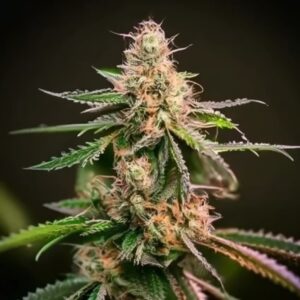


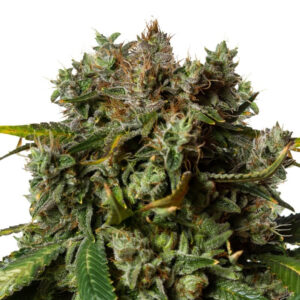

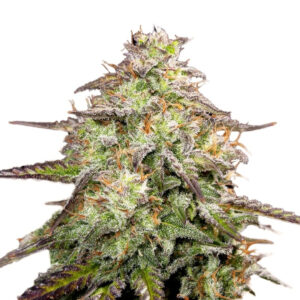
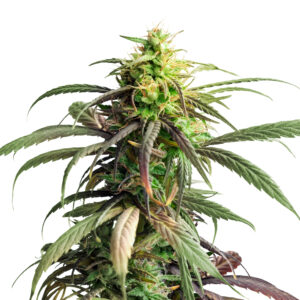






Related Posts
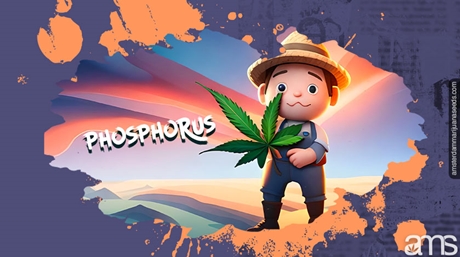
Phosphorus is a critical nutrient that is important for plant growth, maturity, and yield. It is part of the three vital nutrients in commercial fertilizers: nitrogen (N) and potassium (K).
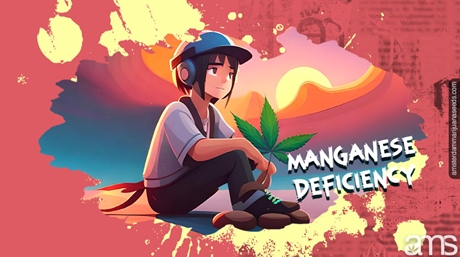
Cannabis growers experience a wide variety of challenges during their growing journey. However, having little knowledge about research, these problems can get solved easily without much straining. One of these significant issues is Manganese deficiency, which has become a rampant case terrorizing cannabis growers.
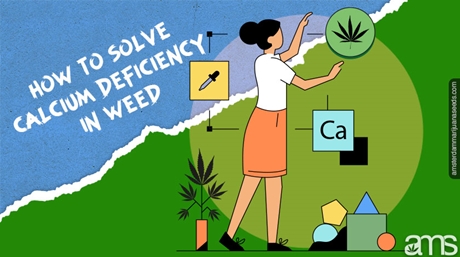
Like us, plants need nutrients to live. So do your weed plants. The crop requires nutrients to germinate, vegetate, flower, and fight off pests and diseases. We have several kinds of crucial nutrients that your weed crop needs. The nutrients are classified into macronutrients and micronutrients.